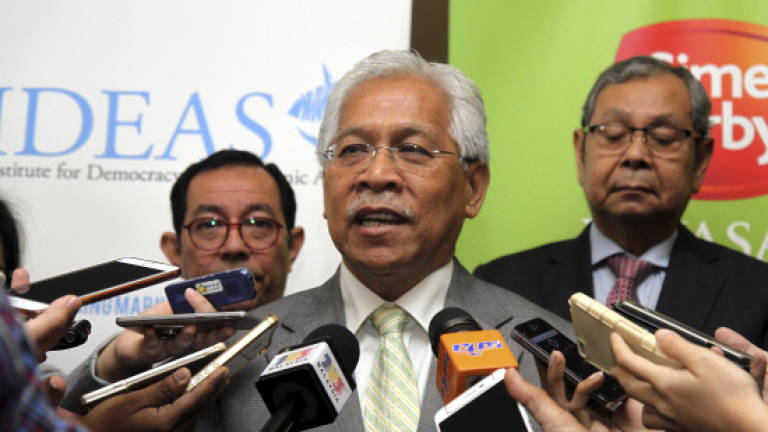No fee hike for undergrads, stresses minister

KUALA LUMPUR: Tuition fees for undergraduates at public higher learning institutions remain the same, despite the government's push to help these universities generate more income independently said Datuk Seri Idris Jusoh.
The Higher Education Minister said there would be no fee hike for students who undergo the ministry's centralised university unit (UPU) selection process for government tertiary institutions.
"As I said three years ago, there is no fee hike for students in undergraduate programmes. It remains. I repeat myself, there is no fee hike for undergraduates. Clear as crystal," he told reporters on the sidelines of the National Higher Education Conference 2017, here, today.
Idris was responding to University of Malaya's (UM) subsidiary UM Centre for Continuing Education’s (UMCCED) move to create a direct intake for its engineering programmes, that would allow those with financial muscle to bypass students who go through the normal application process.
"There are private courses offered by some universities and some others by their private wings. But for normal students, you still only need to pay RM3,000 through UPU," Idris said.
It was previously reported that UM obtains revenue through its subsidiaries operating joint-ventures between public and private institutions, including UMCCED, International University of Malaya Wales (IUMW) and University of Malaya Specialist Centre (UMSC).
A check on UMCCED's website found that it is offering direct intakes for engineering degree programmes for the September 2017 session, with the total fees amounting to RM90,000.
The move is part of the university's effort to generate its own revenue following budget cuts since 2016, with 30% of the university's current operating expenditure being funded by its business interests.
It, however, has been criticised by student group UM Association of New Youth (Umany), claiming that students undergoing UPU would have a slimmer chance of entering the programmes compared to those who are financially capable.
Meanwhile, on suggestions that the appointment of vice-chancellors be left to the respective boards of the universities, Idris said the current process was fair, where all those nominated would be vetted first.
"It seems as though the minister is the one who chooses, but there is a process, and I am guided by the higher education blueprint.
"It is full of transparency. They (nominees) will be assessed by various professional bodies, following which they will have to go through the select committee, before eventually being passed by the minister," he said.